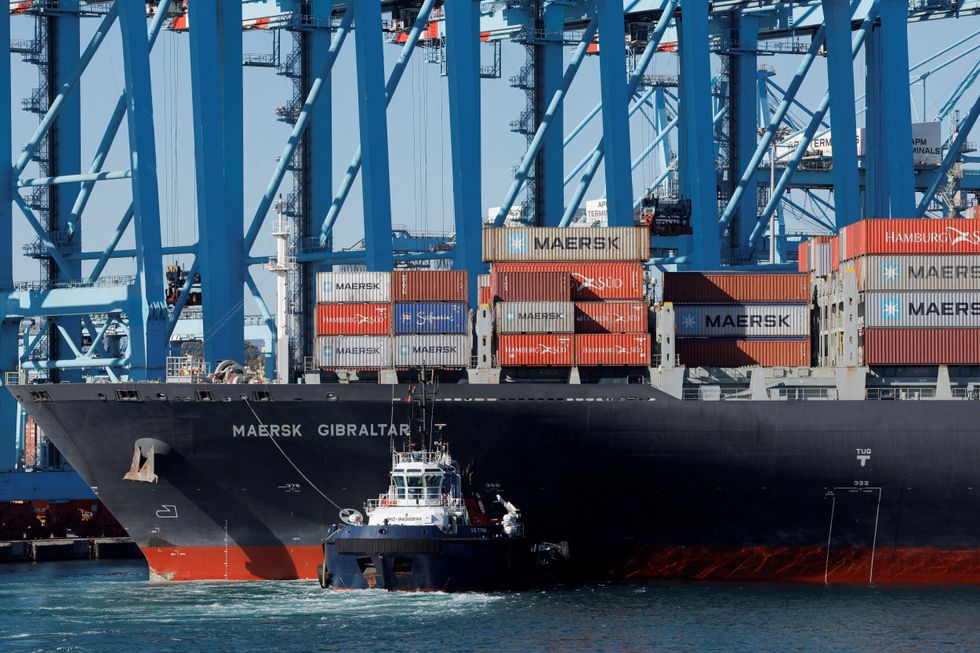



Christmas presents are at risk of arriving very late as one of the world’s largest shipping companies has halted all transits through the Red Sea.
The Danish shipping company A.P. Moller-Maersk will pause all container shipments through the Red Sea until further notice and send them on a detour around Africa, a spokesperson for the company said on Friday.
“Following the near-miss incident involving Maersk Gibraltar yesterday and yet another attack on a container vessel today, we have instructed all Maersk vessels in the area bound to pass through the Bab al-Mandab Strait to pause their journey until further notice,” the company said in a statement.
Maersk on Thursday said its vessel Maersk Gibraltar was targeted by a missile while travelling from Salalah, Oman, to Jeddah, Saudi Arabia and that the crew and vessel were reported safe.

Maersk Gibraltar was targeted by a missile
REUTERS
Earlier on Friday Maersk denied a claim by Yemen's Iran-aligned Houthi movement that the militia had struck a Maersk vessel sailing towards Israel.
“The vessel was not hit,” a Maersk spokesperson said in an emailed statement following the Houthi claim.
The Houthis had claimed they carried out a military operation against a Maersk container vessel, directly hitting it with a drone.
However, the Houthis, who made the claim in a statement, did not release any evidence.
 Christmas gift boxes near fir treeGETTY
Christmas gift boxes near fir treeGETTY
Maersk said the company was deeply concerned about the highly escalated security situation in the southern Red Sea and Gulf of Aden.
“The recent attacks on commercial vessels in the area are alarming and pose a significant threat to the safety and security of seafarers,” it wrote.
Delays to vessels have been exacerbated in recent weeks over another incident at yet another major shipping lane - the Panama Canal.
After a drought, water levels in the region have lowered considerably and slowed vessel transits to a crawl.
Bulk grain shippers hauling crops from the US Gulf Coast export hub to Asia are sailing longer routes and paying higher freight costs to avoid vessel congestion and record-high transit fees, traders and analysts have said.
The shipping snarl through one of the world's main maritime trade routes comes at the peak season for US crop exports, and the higher costs are threatening to dent demand for corn and soy suppliers that have already ceded market share to Brazil in recent years.
Experts have warned shipments are likely to be delayed well into 2024 as a result of the backlog.
“It's causing quite a disruption both in expense and delay,” said Jay O'Neil, proprietor of HJ O'Neil Commodity Consulting, adding that the disruption is unlike any he's seen in his 50 years of monitoring global shipping.
